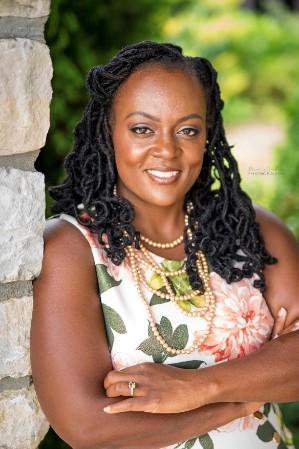
Growing up in a rural town in south-central Kentucky, Dr. Jitana Benton-Lee saw many of her loved ones succumb to preventable diseases.
“The health of the people I cared about most wasn’t the best due to disparities — being poor; being in a community that didn’t have many physicians; having limited access to health information,” she said. “I decided to go into healthcare because of what I noticed in the community.”
However, Dr. Benton-Lee graduated with a bachelor’s degree in English and literature from Northern Kentucky University (NKU) in the year 2000. She also worked in student services for the university.
“When I got out of college with an English degree, I couldn’t figure out how to make money,” she said. “I taught college students for a couple of years before going back for my nursing degree. At that point, I knew I would go back into education — I just didn’t know when.”
Dr. Benton-Lee returned to NKU to earn a Doctor of Nursing Practice degree. After graduating in 2018, she became an assistant professor. She teaches in NKU’s Master of Science in Nursing and Doctor of Nursing practice online programs.
“I love NKU,” she said. “We are very student-centered and family-oriented. As an undergrad, I struggled coming from a small town. NKU works with you.
“I saw that, as well, in my doctoral program. I fell in love with my instructors, who are now my colleagues and friends.”
Familiar Territory
After three years as a business professor and associate dean at Sullivan University, Dr. Benton-Lee graduated with a Bachelor of Science in Nursing from Eastern Kentucky University.
She started her healthcare career as a charge critical care nurse at Central Baptist Hospital in Lexington, Kentucky, in 2005.
“I got my nursing degree and worked for several years as a bedside nurse,” she said. “I have worked the gamut in nursing administration. I managed trauma for many years.”
Now that Dr. Benton-Lee has returned to her first career out of college, she plans to stick to teaching for the long haul.
“I am working on my second doctorate at Texas Woman’s University,” she said. “I will finish in 2023. I plan on being a long-term professor, researcher and nurse scientist.”
Teaching online courses at NKU helps Dr. Benton-Lee balance work with being a student and an advocate for equity.
“I like teaching online because I can interact with students all around the world,” she said. “You have to make it a point to get to know the students. I like to do videos and Zoom meetings to interact with them face to face.
“It allows me to have flexibility in my life to do the thing I am passionate about, which is health equity research. I consider myself a social-determinant-of-health [SDH] researcher, so I am looking at diversity, equity and inclusion. I do a lot of research with that.”
Dr. Benton-Lee serves as a culture of health leader for the Robert Wood Johnson Foundation. She is a Center for Health Equity Education and Advocacy (CHEEA) scholar at Cambridge Health Alliance. She is also the CEO, founder and executive director of Cultured Remedy, a patient advocacy organization.
“The Culture of Health Leaders selected me to develop a culture of health in communities and foster equity,” she said. “With the CHEEA, we are looking to develop social justice with health equity.”
Always Growing
Away from all of the other commitments in her life, Dr. Benton-Lee lives in Lexington and is an avid gardener with an entrepreneurial flair.
“We have a small herb farm,” she said. “We grow 30 different herbs. It’s called Sowlful Blessings. We sell seasoning mixes for culinary use.”
Teaching also allows Dr. Benton-Lee to impact the healthcare field significantly by preparing its future leaders.
“The nurses who are students in our program are working long shifts because of COVID-19,” she said. “Teaching their courses requires flexibility, a lot of love and a lot of conversation.”
Although Dr. Benton-Lee is still somewhat new to teaching at NKU, she loves being back at her alma mater and is striving to improve every day.
“The faculty collaborate to make sure our students are successful,” she said. “We tend to be flexible. We have lots of conversations about our curriculum so that students learn what they need to learn in a way that’s not obtrusive to their lives as working adults. We want to make sure we offer some flexibility and give them assignments that are meaningful.”
Learn more about NKU’s online nursing degree programs.